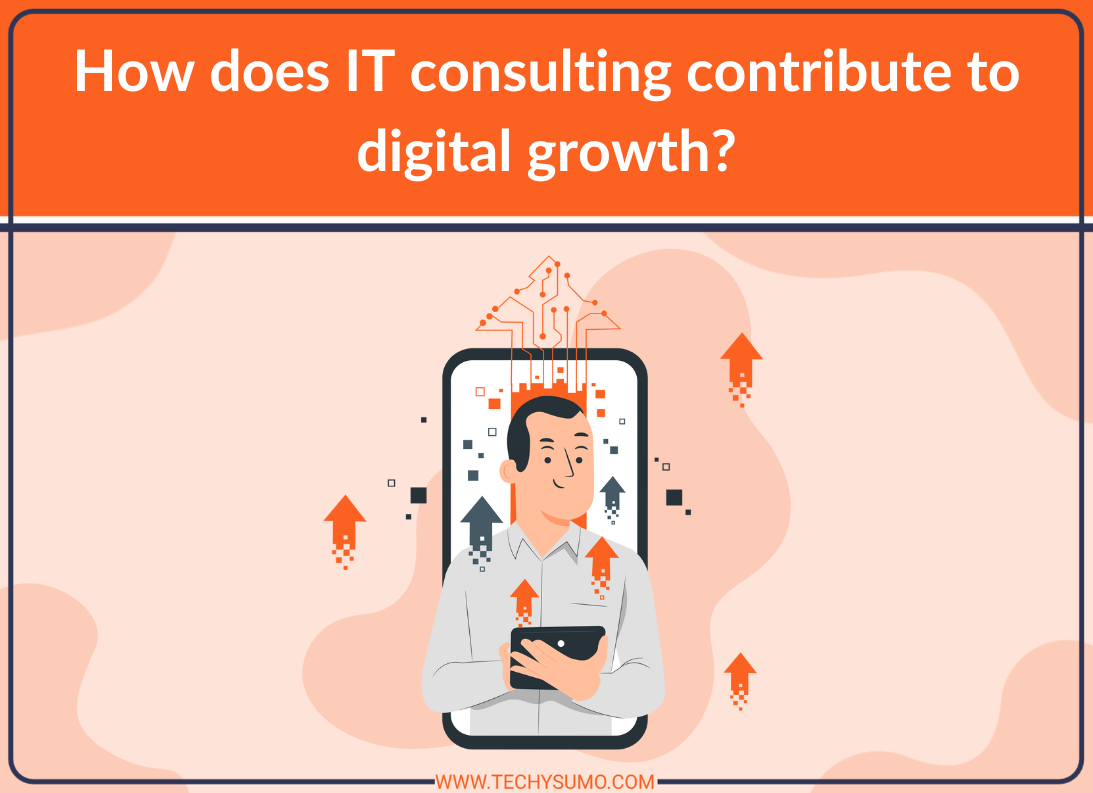Digital growth is no longer optional. Regardless of industry or size, every organisation now relies on technology to meet rising expectations from customers, teams and stakeholders.
Customers expect smooth, consistent experiences. Internal teams need systems that support productivity rather than slow it down. And stakeholders want greater transparency and measurable progress.
But digital growth is not just about rolling out new tools. It involves rethinking how an organisation operates, makes decisions and delivers results. That kind of progress requires more than technology alone. It needs the right guidance and expertise.
This is where experienced IT consultants play a critical role. By working closely with organisations, they help shape the strategies, systems and processes that support practical, lasting improvements.
In this blog, we look at how IT consulting contributes to digital growth in a way that is grounded, focused and built around real business needs.
Table of Contents
Also Read
Why digital growth can’t be delayed?
With technology changing every nanosecond, businesses from all sectors face the pressure to modernise. Right now, standing still is no longer an option.
Yet many organisations still find themselves held back by outdated systems, disconnected teams and digital strategies that lack clarity. These challenges are not just technical. They are structural and operational and solving them requires an integrated approach.
This is where IT transformation consultants can add real value. By helping organisations shape and implement practical strategies, they provide the direction and support needed to make change stick and deliver meaningful results over time.
What Is The True Role of an IT Consultant?
An IT consultant does more than advise on systems. They act as a strategic partner, helping bridge the gap between business goals and technical delivery.
Their role is to:
- Understand what the organisation is aiming to achieve
- Identify what is standing in the way and where the opportunities lie
- Map out how technology, processes and people need to adapt to reach those goals
In practice, this means turning ideas into clear, workable plans. Consultants ensure digital investments are aligned with commercial outcomes from the outset.
6 Ways IT consultants support digital growth
Digital transformation can be complex, but with the right support, it becomes a structured and manageable journey. Here are six practical ways IT consultants help organisations move forward with purpose:
1. Defining a clear digital roadmap
Without a well-defined plan, digital efforts risk becoming fragmented or losing momentum. Consultants work closely with organisations to shape a phased, achievable roadmap. This keeps priorities aligned with business value and ensures each step is practical and deliverable.
2. Modernising legacy infrastructure
Outdated systems can hold back progress. Consultants assess what needs to stay, what needs to change and how new technology can be introduced without unnecessary risk or disruption. The goal is to build a more flexible, future ready foundation.
3. Introducing agile ways of working
Being able to adapt is essential. Consultants help introduce agile methods that improve coordination, speed up delivery and strengthen collaboration across teams. These approaches help organisations respond to change more efficiently and consistently.
4. Bridging the gap between IT and business
Transformation struggles when technical and business teams are not aligned. Consultants play a key role in bringing both sides together, making sure technology decisions reflect business priorities and that business leaders understand the impact of IT choices.
5. Identifying and scaling innovation
Innovation is not always about new technology. Often, it is about improving what already exists. Consultants help uncover high impact opportunities across the organisation that lead to meaningful progress without overcomplicating delivery
6. Focusing on outcomes, not activity
Effective transformation is about achieving outcomes. Consultants define KPIs, monitor progress, and adjust delivery to make sure initiatives generate real business value.
What happens without the right support?
Many digital initiatives lose traction, not because teams lack ambition, but because there is no clear direction. Common challenges include:
- Disconnected technology efforts with no overarching strategy
- High costs with limited return on investment
- Poor adoption caused by limited focus on change management
- Missed opportunities for simplification or automation
These risks are significantly reduced when organisations work with experienced consultants who bring structure, clarity and momentum to the process.
What makes an effective IT transformation consultant?
Not all consultants deliver the same value. The most effective bring a balance of technical knowledge, business understanding and delivery experience. They:
- Align digital initiatives with broader business goals
- Understand the specific challenges of the industry they are working in
- Communicate clearly with both technical and non technical teams
- Focus on phased, achievable delivery that encourages adoption
- Measure success based on outcomes, not just completed tasks
In short, the right consultant acts as an extension of the organisation, helping to turn strategy into sustained success.
Bottomline: Is your organisations ready for what’s next?
Change is constant, but organisations that approach digital growth with clarity and structure are more equipped to respond and adapt.
Now’s the time to reflect:
- Are your systems designed for agility, or built for yesterday’s challenges?
- Do your teams have the right tools and the clarity to use them effectively?
- Is your IT strategy helping the business grow or simply ticking boxes?
With the right support, digital growth is predictable, sustainable, and measurable.






